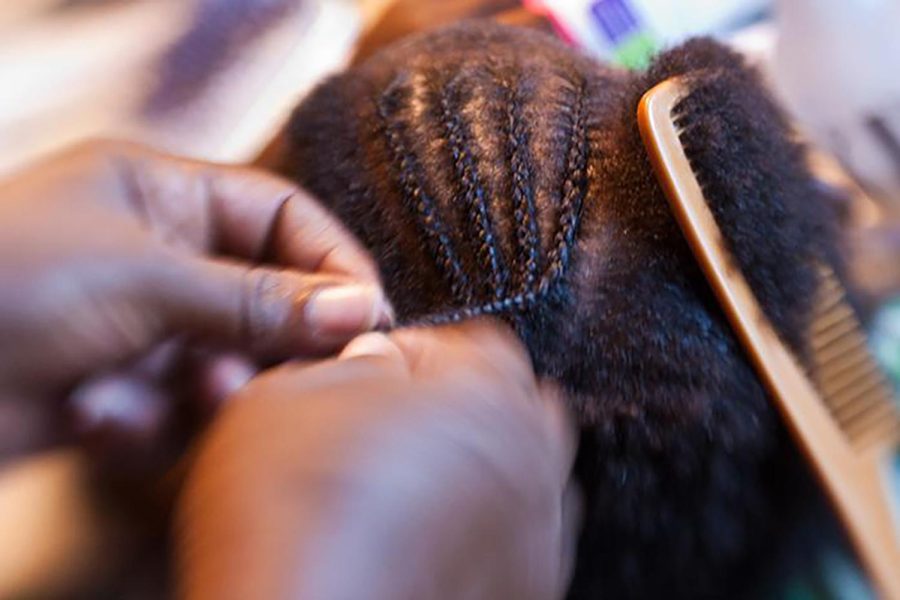Texas could soon welcome a new bill with the help of state Rep. Rhetta Bowers after the Texas Senate drafted a proposal known as House Bill 567 which would prohibit race-based hair discrimination at schools and workplaces.
House Bill 567 is a proposal that came into fruition through the experiences of two Black high school students near Houston. Their situation made international headlines in 2019 as they had to cut their locs or face discipline.
Inspired by the experiences of these two boys, emotions filled with anger and disappointment, State Rep. Rhetta Bowers was the one who filed for this bill to help stop public discrimination regarding certain hairstyles such as braids, locs, or twists in schools and workplaces. Aiming to protect citizens for how they choose to wear their hair and culture, legislation like this is not new, since 2019, after several high-profile cases of hair discrimination, brands like Dove and other organizations have partnered to create the CROWN Act (Creating a Respectful and Open World for Natural Hair).
Across the US, 30 states do not have laws to protect citizens from hair discrimination. Some people like legislative strategist of the CROWN Act, Adjoa B. Asamoah feel discriminating against someone based on their hairstyle is an issue that is not commonly understood or addressed. Asamoah thinks this issue is more prevalent than many people think, in an interview with Global Citizen.
“Racial discrimination in the form of hair discrimination is more prevalent than many people may think, and anti-Blackness is pervasive not just in one state or even in the US,” Asamoah said.
The CROWN Act was signed into law in July 2019 by Gov. Gavin Newsom of California, making it the first state to ban hair discrimination in the U.S.
From Nevada to Maine, 20 states have adopted the CROWN Act allowing anyone to wear their hair how they see fit, even in conservative states like Florida or Oklahoma proposals have been filed pushing for this law.
While this momentum is still standing strong and has gained a lot of support from the public, Texas could soon join the list of states banning hair discrimination and after a recent hearing, the future is looking bright.
A room filled with anticipation and hope, Wednesday, April 12, would mark the Texas House approval of House Bill 567 as representatives overwhelmingly voted with a 141-3.
In a crowded room filled with dedicated individuals shouting in support of this bill, more than a dozen witnesses testified in support of the bill during the historic legislative process.
Dakari Davis, a Black police officer who testified in support of the bill and according to the Texas Tribune thinks people should not be judged for sporting styles that are natural for their hair. Davis who has cornrows was once suspended from duty due to his hair.
“The discrimination had occurred, and the damage was done I was confused as to how my natural hair determined that I was not good enough to protect Texans,” David said. “Confused as to why I had to change my appearance to fit in with the old standards of beauty created during a time where people that didn’t look like me were considered a non-factor.”
UTEP student Kaila Pillaro-Estrada has naturally curly hair and thinks that people should not have to adjust their hair to fit in with professional standards and that specific hairstyles should not define a person’s professionalism.
“I never understood that people with curly hair, they should straighten it too look more professional or with people who wear braids, that’s just style I never understood on why that might look unprofessional to some people,” Pillaro-Estrada said. “People should wear their hair on how they want, it doesn’t affect their skills, I think we all have an idea on what professionalism looks like.”
Sitting in that room, state Rep. Bowers was hopeful as ever and considers this vote an accomplishment and a step in the right direction and is ready to send this bill to the Senate.
“I am overjoyed with today’s vote on the Texas CROWN Act, the house took a strong stance against hair-based discrimination, and I look forward to sending this bill over to the Senate after tomorrow’s final vote,” Bowers said.
Erik Acosta is a staff reporter and may be reached at [email protected]
















